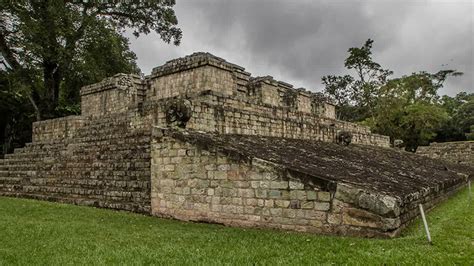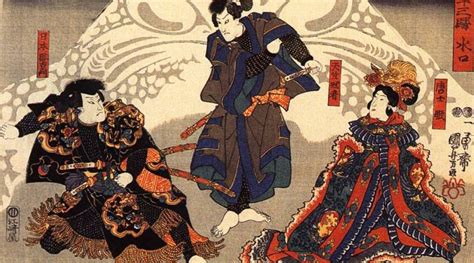Explore the rich history of New Zealand from Early Maori Settlement to Independence and Modern History. Learn about European exploration, colonization, Treaty of Waitangi, and New Zealand Wars.
Early Maori Settlement
Contents
Early Maori settlement in New Zealand dates back to the 13th century, when the ancestors of the Maori people arrived in their canoes from eastern Polynesia. These early settlers brought with them their unique culture, traditions, and agricultural practices, which they adapted to the new environment of New Zealand. They established settlements along the coast and gradually spread inland, building fortified villages known as pa.
The Maori were skilled horticulturalists, cultivating kumara (sweet potato), taro, gourds, and other crops. They also hunted, fished, and gathered food from the forests, rivers, and sea. Their social structure was organized around tribal groups, each with its own leadership and customs. As the population grew, conflicts over land and resources arose, leading to a period of tribal warfare and competition.
Despite these challenges, the Maori continued to thrive and develop their culture, creating intricate wood carvings, weaving, tattooing, and performing arts. This early period of Maori settlement laid the foundation for the rich and diverse culture that continues to be an integral part of New Zealand society today.
European Exploration and Colonization
European Exploration and Colonization
European exploration and colonization of New Zealand is a significant part of the country’s history. During the 17th century, explorers from Europe began to visit the islands of New Zealand, with the Dutch being the first to sight the land. The encounter between the Maori people and European explorers led to trade and exchanges between the two cultures, ultimately leading to colonization.
The arrival of European settlers in the early 19th century marked a significant period of colonization in New Zealand. The British government sought to establish a presence in the region, leading to the signing of the Treaty of Waitangi in 1840. This treaty between the British Crown and Maori chiefs aimed to create a partnership between the two parties, providing Maori people with protection and rights while allowing for British colonization.
As European settlers began to establish themselves in New Zealand, conflicts arose between the Maori and the British government. These conflicts, known as the New Zealand Wars, centered around issues of land ownership, cultural differences, and conflicting interpretations of the Treaty of Waitangi. The wars resulted in significant changes to the social and political landscape of New Zealand.
Despite the challenges of colonization and conflict, New Zealand eventually gained independence and developed into a modern nation. The history of European exploration and colonization has had a lasting impact on New Zealand, shaping the cultural identity and historical narrative of the country.
Treaty of Waitangi
The Treaty of Waitangi is an important document in the history of New Zealand, signed on 6th February 1840 between representatives of the British Crown and various Māori chiefs. The treaty was intended to create a unified and peaceful society in which Māori and European settlers could coexist. However, there have been ongoing debates and controversies surrounding the treaty, particularly regarding its interpretation and implementation.
One of the key issues surrounding the Treaty of Waitangi is the differences between the English and Māori versions of the document. These differences have led to disputes over the meaning and intent of the treaty, with some arguing that the Māori version grants sovereignty to the Māori people, while others argue that it cedes sovereignty to the British Crown.
The signing of the treaty also had significant implications for the land rights of Māori people. The treaty guaranteed Māori full ownership of their lands, forests, fisheries, and other possessions. However, there have been numerous instances in which these rights have been violated, leading to ongoing land disputes and legal battles between Māori and the New Zealand government.
Today, the Treaty of Waitangi continues to be a subject of debate and reconciliation between the Māori people and the New Zealand government. Efforts have been made to address past injustices and honor the principles of the treaty, but many challenges remain in ensuring that the rights and interests of Māori are fully respected and protected.
New Zealand Wars
New Zealand Wars refers to a series of armed conflicts fought between the Māori people and the European settler colonists and their Māori allies. These wars, which took place between the 1840s and the 1870s, were primarily caused by tensions over land ownership and the gradual encroachment of European settlers onto Māori lands. The conflicts were also influenced by the impact of British colonialism and the struggle for power and control in New Zealand.
The New Zealand Wars were a defining period in the history of New Zealand as they shaped the relationships between Māori and European settlers, as well as the political and social landscape of the country. The wars resulted in significant loss of life and displacement of Māori from their traditional lands. They also led to the establishment of the New Zealand government’s presence throughout the country and the imposition of British law and authority over Māori communities. The aftermath of the wars had a profound impact on the Māori population and their cultural identity.
The New Zealand Wars also had lasting effects on the political and economic development of the country. The conflicts highlighted the inequalities and injustices faced by the Māori people and motivated movements for greater recognition and protection of Māori rights. The wars also contributed to the growth of New Zealand’s identity as a nation and the ongoing efforts to reconcile the differences between the Māori and Pākehā (European) communities.
Independence and Modern History
Independence and Modern History of New Zealand is marked by a series of events and decisions that have shaped the country to what it is today. The journey towards independence began with the signing of the Treaty of Waitangi in 1840, but it wasn’t until the late 19th and early 20th centuries that New Zealand truly began to assert its independence.
In 1907, New Zealand became a dominion within the British Empire, granting it a greater degree of autonomy. This was followed by the Statute of Westminster in 1931, which further solidified New Zealand’s status as an independent nation with its own parliament and the ability to make its own laws.
Modern history in New Zealand has been characterized by a growing sense of national identity and the pursuit of policies that reflect the unique culture and values of the country. This includes the introduction of the welfare state, the recognition of Maori rights and the promotion of environmental sustainability.
New Zealand’s modern history is also defined by its stance on global issues, such as its anti-nuclear policy and its role in peacekeeping missions around the world. The country has worked to strengthen its international relations while maintaining its position as a sovereign nation.












